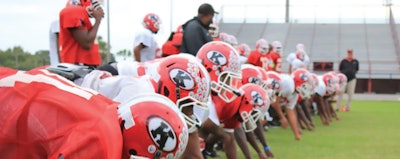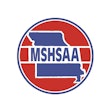![[Images from Kathleen High Red Devils Football Facebook page]](https://img.athleticbusiness.com/files/base/abmedia/all/image/2018/11/ab.legal1118_feat.png?auto=format%2Ccompress&q=70&w=400)
When recreation and school administrators think about employment law, they usually focus on the area of law related to the process of recruiting, interviewing and hiring employees. This process is only a small part of employment law.
Once a sports or recreation organization has recruited and hired its preferred candidate, its legal obligation is still not finished. Sports and recreation organizations, just like all organizations, have a legal duty to ensure that the person hired is actually qualified and fit for the job. In particular, sports and recreation organizations need to ensure that participants in their programs are protected from sexual and physical abuse by the organization's employees. If the organization fails in its duty to properly supervise its employees, it is potentially opening itself up to a lawsuit.
No case illustrates an organization's obligation to properly supervise its employees — or the consequences of negligent supervision — better than the Larry Nassar scandal that rocked Michigan State University and USA Gymnastics. Nassar, who was employed by both institutions, was convicted of sexually abusing more than 300 women and girls. As a result of his behavior, Michigan State agreed to pay $500 million to the victims of Nassar's abuse.
In addition to sexual abuse, however, it is increasingly common for schools and recreational organizations to face lawsuits involving the physical abuse of athletes and participants — particularly minors, the elderly and people with disabilities — by coaches, employees and volunteers. A good example of the problems faced by school and athletics administrators regarding the physical abuse of athletes by coaches is Devarus Robinson v. Polk County School Board [Case # 2013-CA003979, Polk County (Fla.)].

Coach-on-athlete abuse
Devarus Robinson was a player on the Kathleen High School football team in Lakeland, Fla. While on the team, Robinson was constantly subjected to bullying and physical abuse by the school's head football coach, Irving Strickland. In particular, the court found that Strickland would twist Robinson's nipples — so much so that Robinson's nipples were permanently disfigured.
After one such incident in which Strickland had assaulted Robinson during a discussion about his grades, Robinson reported the abuse to school administrators. Even though Strickland acknowledged the abuse when he was questioned by school administrators, he was only given a written reprimand for his actions, and the state Department of Education ruled that no further action was necessary.
Under the theory of vicarious liability, employers are generally only liable for the negligent behavior of their employees carried out during the scope of their jobs. Intentional torts or criminal acts by employees, however, are generally considered outside the scope of employment and therefore not the liability of the employer. Because abuse is an intentional tort or crime, courts have had to develop new theories of negligence under employment law in order to hold the employer liable for the actions of employees. In particular, the courts are willing to find a school or organization liable for injuries caused by the intentional tort when the school or organization was negligent in the hiring, supervision, training, retention and referrals of employees.
Under the theory of vicarious liability, employers are generally only liable for the negligent behavior of their employees carried out during the scope of their jobs. Intentional torts or criminal acts by employees, however, are generally considered outside the scope of employment and therefore not the liability of the employer. Because abuse is an intentional tort or crime, courts have had to develop new theories of negligence under employment law in order to hold the employer liable for the actions of employees. In particular, the courts are willing to find a school or organization liable for injuries caused by the intentional tort when the school or organization was negligent in the hiring, supervision, training, retention and referrals of employees.
In the current case, Robinson argued that the constant abuse he received at the hands of Strickland was caused by the negligence of the Polk County School Board in both the hiring and retaining of the coach.
Interestingly, Robinson did not even name Strickland as a defendant in the lawsuit. In examining negligent hires, which represent perhaps the most common theory of negligence in employment law cases, the courts generally consider whether the employee or volunteer who was assigned to a job was qualified or fit for the job. Even in cases where an individual has all of the proper qualifications, an employee may still be unfit for the job.
In cases dealing with abuse, the plaintiff is required to show that any abuse committed by the employee or volunteer was foreseeable. In particular, the key question is whether the employer should have been able to foresee that the employee would abuse others. Generally, sports or recreation employers can satisfy this requirement by conducting background checks on all new coaches, employees and volunteers. If the employer conducts a background check and does not find any problems involving abusive behaviors or potential warning signs, any abuse committed by the employee would be unforeseeable. As a result, the employer cannot be found liable for negligently hiring the employee or volunteer.
However, even if an employer does a proper and thorough background check, their legal obligations don't end there. While an employee or volunteer might not pose a foreseeable risk of abuse when he or she is hired, the organization can still be held liable under the theory of negligent retention if an employer observes or receives information about an employee or volunteer abusing an athlete or participant and fails to terminate or remove that employee.
 Devarus Robinson convinced a jury that he suffered repeated physical abuse at the hands of his football coach, and that Kathleen High School administrators could have stopped it.
Devarus Robinson convinced a jury that he suffered repeated physical abuse at the hands of his football coach, and that Kathleen High School administrators could have stopped it.
School board negligence
In Robinson v. Polk County School Board, it is clear from both medical records and the school board's reprimand of Strickland that there was a history of abuse by Strickland and that school administrators and officials failed to protect Robinson from that abuse by removing Strickland as coach. As a result of the school board's negligence, the jury found against the Polk County School Board and awarded Robinson $125,000.
As illustrated by the wrongful and criminal behavior of Nassar and Strickland, school and athletics administrators need to not only follow the proper procedure when hiring new coaches, employees and volunteers, but also ensure that they properly supervise these individuals once they start working with athletes. If administrators learn of abuse, they need to act swiftly and remove anyone who poses a risk to the safety of athletes and participants. Failure to do so will only open the organization up to potential damaging lawsuits.
This article originally appeared in the November | December 2018 issue of Athletic Business with the title "School board found negligent in coach's abuse." Athletic Business is a free magazine for professionals in the athletic, fitness and recreation industry. Click here to subscribe.




































